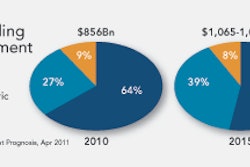For example, a packaging service provider may obtain a contract to package a branded consumer product and later seek to obtain a contract to package a competing generic product. Since generic products are often in similar packages with slightly different labeling, the provider may be able to utilize similar packaging processes and machines or capitalize on contracts with vendors and suppliers to obtain lower prices for higher quantities.
The provider’s perspective
Service providers, therefore, are not typically enamored with the idea of an exclusive arrangement with a buyer in which the service provider may not provide services to competitors of the buyer. Not only would the service providers lose the opportunity to capitalize on economies of scale, but they may also subject themselves to potential avenues of liability.
Exclusive arrangements may include restrictions on certain types of packaging or on potential new customers for the provider. The more restrictions, the greater the possibility of liability. The additional potential liability coupled with the reduction of a potential client base deters service providers from exclusive arrangements.
On the other hand, an exclusive arrangement may lock-in larger quantities and long-term deals, and may also invoke more favorable pricing negotiations.
The buyer’s perspective
Likewise, a buyer can also agree to exclusively use a particular contract packaging service provider for a period of time. In a given situation, the benefit to a buyer can be better pricing which can accompany guaranteed minimum and exclusive arrangements, while the service provider can benefit from securing all of the packaging business for either a particular product or line of products.
Alternately such an exclusive arrangement can present meaningful risks for the buyer. In the event that a service provider cannot keep up with demand or has quality or performance issues, the buyer may be “stuck” with the service provider. In turn, the exclusive arrangement can put the buyer at risk with customers for the service provider’s inability to provide products in sufficient quantities or a timely manner.
Consider confidentiality
For both buyer and seller of services, it’s important to consider confidentiality issues when negotiating an exclusive arrangement.
One positive aspect to the buyer is that an exclusive arrangement is one way to protect confidential information. While a company should take other steps to protect its confidential or trade secret information, an exclusive arrangement can operate as an additional protective measure by precluding one party from providing services to a competitor.
For example, if a company is precluded from working with its customer’s competitor, the likelihood of disclosure of confidential information is reduced. An exclusive arrangement reduces the enticing factor that salesmen sometimes face — the disclosure of perceived “insignificant” information to obtain additional business from a customer’s competitor.
Call your counsel
An attorney provides important insight and should be consulted early in any consideration of an exclusive arrangement. Unfortunately, attorneys are often approached by clients late, after an exclusive arrangement has gone awry. The better approach for buyers and service providers is to consult an attorney before negotiating contracts.
An attorney, especially one with experience in the packaging industry, can provide invaluable insight into the negotiation and drafting of exclusive agreements. The mechanics of guaranteed minimums, requirements, deliveries, inspection and compliance involve numerous subtleties that, if not properly addressed, can have negative ramifications for one or both of the parties. Enforcement of those agreements is based on technical issues and often parties neglect to include specific provisions which impact the enforceability of the agreement.
Getting an experienced attorney involved can result in a better deal for both buyers and service providers.
There are pros and cons to exclusive arrangements — those issues are different for each party involved and can be complex. An exclusive arrangement must be carefully thought through and analyzed for best- and worst-case scenarios.
The exclusive agreement itself must be detailed and thoroughly address all of the issues that are associated with these types of arrangements. The agreement must address the rights and remedies of each party but also the practical side of things — the mechanics of the relationship. Opportunities can arise from circumstances that seem problematic. Be creative and consult experienced counsel to try to turn the scenario into a mutually beneficial venture for all.
The authors are attorneys with Chicago-based Horwood Marcus & Berk Chartered (www.hmblaw.com). Megan M. Mathias represents contract packaging service providers; Jeffrey A. Hechtman represents privately held businesses in a broad range of matters.
























